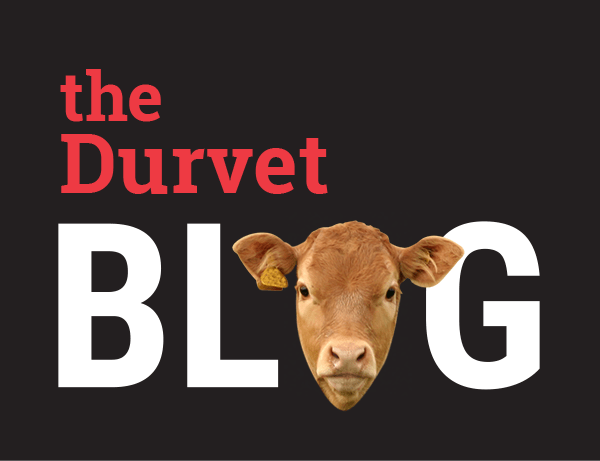
If you are part of the growing trend of urban farming, hobby farming, or small to mid-scale farming you already know that there are many responsibilities. You put a lot of time into your farm and want to know the products and services you choose to work just as hard as you do, especially when it comes to keeping your animals healthy.
Aside from fleas and ticks, worms are a common problem in most animals as they are easily ingested in the environment, and – if left unchecked – may cause weight loss, increase susceptibility to diseases, poor growth, weakness and can even be life-threatening. Most worms live two lives: one inside your animal and one outside. One of the best things you can do for your animals is to implement a strategic parasite control plan that takes both into account.
The main culprits
For Horses:
Small strongyles are considered the most common worm problem in the adult horse today. When small strongyle larvae are ingested, they burrow in the wall of the intestine. As many as 90-percent of the larvae may become encysted in this manner[1] and remain in this stage of development for 4 months or up to 3 years.[2] Over time, encysted larvae continue to accumulate in the intestinal wall. Inflammation of the intestinal wall may lead to ill thrift, weight loss, or protein loss in the horse. Occasionally, more severe complications may occur when the encysted larvae start developing again at once and they all emerge at the same time (typically spring). This may cause severe problems for the horse and even death.
In young horses, the roundworm is the greatest concern and presents a two-pronged threat. When eggs are ingested, the larvae hatch and migrate, eventually invading the lungs, creating inflammation and ill thrift. Coughing associated with this lung inflammation may be confused with other inflammatory airway diseases. Larvae in the lungs get coughed up, swallowed and passed into the intestinal tract where they become large adults (growing up to 12 to 15 inches) in the small intestine. Severe ascarid (roundworms) infestations can create an intestinal obstruction that could lead to impaction colic or intestinal rupture, which can be fatal. Roundworm eggs are passed in the feces and are very hardy, potentially staying around to infect and re-infect horses for years.
Clinical signs will vary depending on the type and number of worms but include listlessness, inappetence, recurring colic, weight loss, swelling, diarrhea and possibly death.
In addition to routine pasture and paddock manure removal to reduce your horse’s overall exposure to parasite eggs, the strategic use of equine dewormers is very important. A veterinarian will be helpful in determining the right equine deworming program for your farm. All deworming programs should be informed by a fecal egg count (FEC).
Safe-Guard® (fenbendazole) horse dewormer comes in a feed or paste form for convenient deworming. It is effective against many of the most common intestinal parasites in horses, including large and small strongyles, ascarids and pinworms.
For cattle:
There are many worms that infect cattle, including lungworms, stomach worms, and intestinal worms. An individual animal may have many of these at once.
Adult parasites produce eggs that are passed in the manure. The eggs hatch, producing larvae that develop and are consumed by grazing cattle. Once inside a new host, the process starts over again. Parasites have a tremendous ability to survive on pasture. Eggs can survive the winter and hatch with warm weather. Infection is most likely to occur when temperatures are between 60° and 80°F and when there is adequate rainfall.
Cattle with severe worm burdens can show signs of diarrhea, anorexia, and lethargy. A mild-to-moderate worm burden can also cause disease and stress the immune system, making the animal more prone to other diseases. If not held in check, internal parasites can lead to reduced feed intake and production, resulting in less consumption of energy, protein, vitamins, and minerals.
Managing parasites in cattle can be a challenge, especially if the animals are not regularly handled. Fortunately, there are deworming solutions uniquely geared to non-handling operations. Safe-Guard® (fenbendazole) is available in multiple formulations including feed pellets, blocks, mineral, paste and suspension, making it an effective and convenient choice for any cattle operation.
For dogs:
Dogs that spend time outside are at an increased risk of infection since sources of parasite infections are more likely to be found outdoors. The four major types of intestinal parasites of dogs are the roundworm, hookworm, whipworm, and Taenia tapeworm.

Sources of infection will vary depending upon the specific parasite. For hookworms and roundworms, puppies are commonly infected by their moms through the placenta and the milk, so early intervention is necessary. Other common sources include soil, feces, rabbits, and rodents. Hookworms can enter through the pads of the feet and don’t need to be ingested.
While symptoms vary depending upon the specific parasite, health problems can range from diarrhea, vomiting, anemia, and dehydration to itching, stunted growth, rough coats, weight loss, and even death in extreme cases.
Parasites can be passed from animals to humans
Some of the worms that infect animals can also cause disease in people, known as a zoonotic disease. Preventing parasite infections in dogs is not only important for the overall health of the dog but also to reduce human health risks associated with environmental contamination. Young children are the most vulnerable because of their poor hand hygiene and a tendency to put things in their mouths. Most infections in kids and adults happen by accidentally ingesting the microscopic roundworm eggs containing immature worms. The worm migrates and can cause illness or blindness.
Hookworms also can cause disease in people when the eggs are accidentally ingested. A more common threat is a skin irritation that occurs when the hookworm larvae (immature worms) enter the skin and migrate causing severe itching and painful tunnel-like rashes.
Safe-Guard® (fenbendazole) Canine Dewormer is a safe and highly effective treatment for eliminating a variety of intestinal worms including six species of the four major parasites found in dogs that spend a lot of time outside, including whipworms and Taenia tapeworms.
How dewormers work is just as important as why
Fenbendazole, the active ingredient in Safe-Guard®, is a unique dewormer because of the way it works. Its mode of action is why it is a safe choice for deworming in so many different situations and for so many different animals. It has no contraindications and is safe for the environment.
Talk to your veterinarian today about the benefits of Safe-Guard® for your farm. A veterinarian will be able to guide you on the best use of dewormers such as Safe-Guard® for effective management of parasites.

Bottom line
Raising animals so that they are healthy and productive means a lot of hard work, but the reward is well worth it. By implementing a strategic deworming plan, you can relax knowing you are reducing the risk of worms for your horses, cattle and dogs. For more information, visit www.science-of-safe.com for horses; www.safe-guardcattle.com or www.safe-guard-for-dogs.com.
Consult your local veterinarian for assistance in the diagnosis, treatment and control of parasitism. Do not use in horses intended for human consumption. When using Safe-Guard® (fenbendazole) Paste 10% concomitantly with trichlorfon, refer to the manufacturer's labels for use and cautions for trichlorfon.
Safe-Guard mineral, feed-through products and liquid feed: RESIDUE WARNING: Cattle must not be slaughtered within 13 days following last treatment. For dairy cattle, the milk discard time is zero hours. A withdrawal period has not been established for this product in pre-ruminating calves. Do not use in calves to be processed for veal.
Approximately 1% of dogs had vomiting associated with the use of this product. Safe-Guard® Canine Dewormer has no known drug interactions and is an ideal complement to monthly heartworm prevention products, which may not protect against all four major types of intestinal worms.
Copyright © 2019 Intervet Inc., d/b/a Merck Animal Health, a subsidiary of Merck & Co., Inc. All rights reserved.
[1] Proudman CJ, Matthews JB. Control of Intestinal Parasites in Horses. In Practice. 2000;22:90–97.
[2] Corning S. Equine cyathostomins: a review of biology, clinical significance and therapy. Parasit Vectors. 2009; 2(Suppl 2): S1. doi: 10.1186/1756-3305-2-S2-S1

 BACK TO MAIN BLOG
BACK TO MAIN BLOG 
Comment